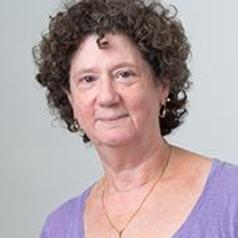State Gaming Commission funds unprecedented examination of new casinos’ socioeconomic effects

Credit: Umass Amherst
The Massachusetts Gaming Commission has awarded a renewable contract to a University of Massachusetts Amherst team to continue groundbreaking research into the socioeconomic impacts of introducing casino gambling in the state.
The new funding – about $1 million a year for three years, with two annual options to renew – will enable researchers with the Social and Economic Impacts of Gambling in Massachusetts (SEIGMA) study, based at the UMass Amherst School of Public Health and Health Sciences, to complete an unprecedented, comprehensive, 12-year investigation.
“This will continue to be the longest-lasting study of the impacts of the introduction of a new form of gambling in a jurisdiction,” says lead investigator Rachel Volberg, a UMass Amherst research professor who has studied gambling and problem gambling across the world for more than three decades. “What’s going to be most interesting going forward is being able to have a fine-grained understanding of the disparate impacts that introducing different kinds of casinos has on communities that are differentially at risk of experiencing gambling-related harms.”
In 2013, the Gaming Commission chose the UMass consortium, which includes the UMass Donahue Institute, the University of Chicago’s National Opinion Research Center and colleagues at the University of Nevada Reno and the University of Lethbridge in Alberta, Canada, to carry out the robust research agenda mandated by the 2011 Expanded Gaming Act.
The wide-ranging research began with community profiles and baseline population studies to depict gambling behavior in Massachusetts before any of the casinos opened. “The baseline survey allows us to monitor trends over time and to inform stakeholders of what the state looked like before casino gambling in Massachusetts, which then allows for a real assessment of impacts,” Volberg says.
Volberg also is spearheading a separate Massachusetts Gambling Impact Cohort (MAGIC) study funded by the Gaming Commission. It is the first major study of its type in the U.S. MAGIC researchers are examining how problem gambling develops over time. Goals include identifying populations in Massachusetts who are at higher risk of problem gambling and experiencing gambling harm, which will help in developing data-driven prevention and treatment programs in the state.
The initial SEIGMA investigation period assessed impacts associated with the state’s first new gaming facility – the Plainridge Park Casino, a slot parlor that opened in 2015 in Plainville. The SEIGMA team reported largely positive impacts initially, with clear economic benefits and relatively minor negative social impacts, such as problem gambling.
For instance, in regard to economic benefits, Plainridge Park Casino was found to have created new employment opportunities that benefited the unemployed and underemployed, as well as those with little educational attainment, experience or training.
Concerning public health impacts, however, and as detailed in a more recent report, the research team found that a smaller number of people are spending more dollars at the slot parlor, which may signal a public health concern.
Such assessments underscore the importance of ongoing evaluation of the dynamic gambling landscape in Massachusetts. “The impacts are clearly not static and continue to evolve,” Volberg notes.
With two large resort casinos now open, the research will shift toward assessing the emerging impacts of MGM Springfield, operating in downtown Springfield since August 2018, and Encore Boston Harbor, opened in Everett in June 2019.
“The characteristics of Plainville are quite different from the host communities of the two resort-style casinos now operating,” Volberg says. “Our research team looks forward to assessing the impacts of the opening of casinos in Springfield and Everett.”
The UMass Amherst research team will release reports on the employment, operational and public health impacts of MGM Springfield this spring and summer, and will begin a comprehensive assessment of Encore Boston Harbor next fall.
###
Media Contact
Patty Shillington
[email protected]
305-606-9909
Original Source
https:/




